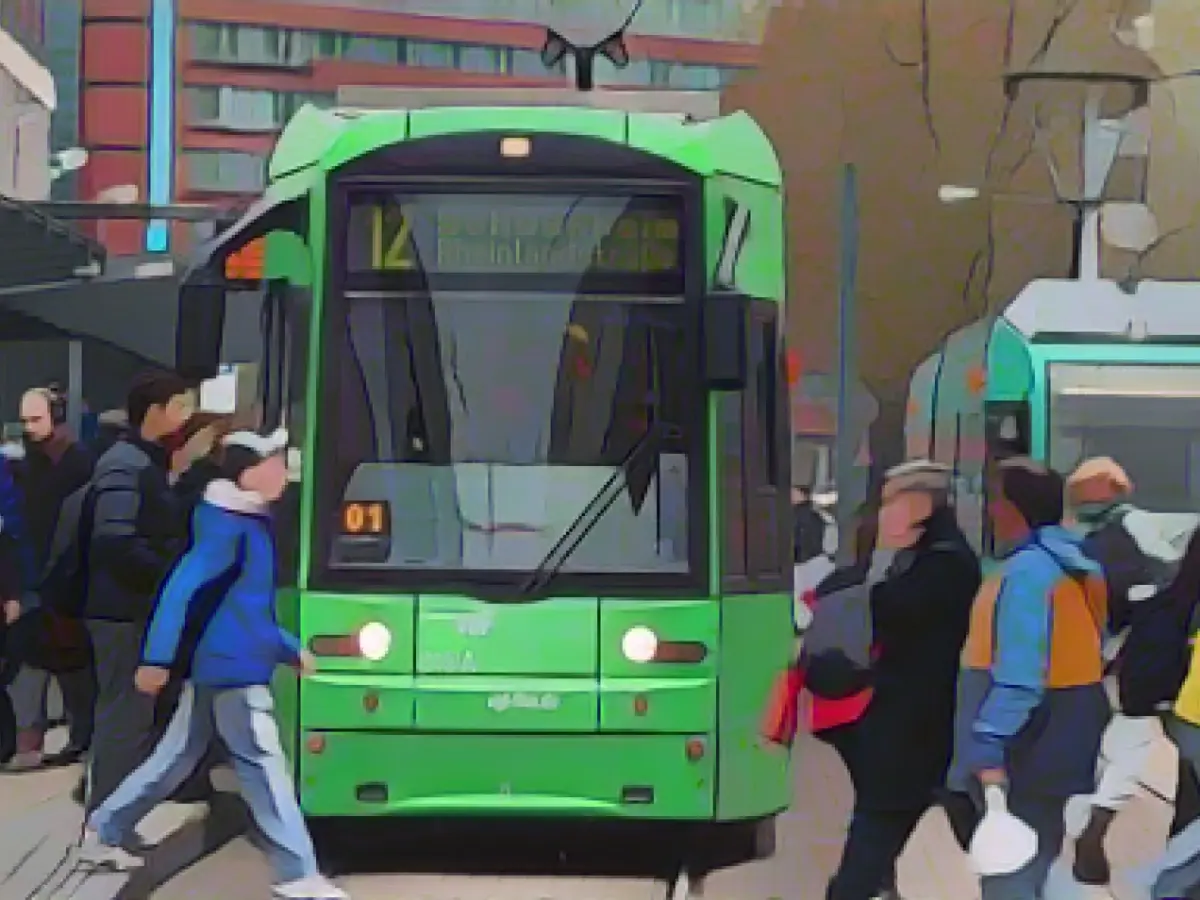Struggling to Keep the Wheels Turning: The Persistent Driver Shortage in Hesse's Public Transport
The local public transport system in Hesse, Germany, is at a crossroads. On one hand, services are longing to expand, but on the other, there's a significant shortage of drivers. As reported by the German Press Agency, approximately 10% of available positions remain unfilled in the Hessian bus companies, and around 1,000 driving vacancies have popped up on Hesse's roads alone. The state of affairs on the railways is painfully similar. Volker Tuchan, the Managing Director of the Hessian Bus Companies Association based in Giessen, voiced his concern that the situation potentially poses a threat to the transport turnaround.
City cancellations and reduced routes
The scarcity of drivers has compelled cities like Frankfurt to announce cuts in bus, train, and streetcar services. Tuchan fears that other municipalities and districts might eventually follow suit. "If the bus comes every twelve minutes instead of every ten minutes in the city, that's different than if a bus that runs once an hour is canceled," said Tuchan, highlighting the distinctive predicament that rural areas might face.
Underlying causes and potential solutions
The primary driver behind the shortage stems from the general lack of skilled workers within Europe. Another hurdle for newcomers is the high expenses associated with obtaining a driver’s license and the required qualifications, which can reach up to 10,000 euros. Moreover, not everyone can adjust to the demands of nighttime and weekend shifts. Tuchan doesn't anticipate a speedy resolution to the vacancies issue.
Retirement preparations and immigration advocacy
When the upcoming wave of retirements reaches Hesse's senior drivers in a few years, the situation will likely escalate further. To combat this, Tuchan advocates for easier immigration policies from outside the EU and lowering training costs. These measures could help alleviate the shortage of skilled drivers.
Germany-wide driver shortage
Around 1700 drivers are missing across Germany, based on statistics from the Federal Association of Local Rail Transport (BSN), which counts RMV and NVV — the two most significant Hessian local transport companies — as members. BSN President Thomas Prechtl does not rule out the possibility that service reductions might expand nationwide if recruiting new drivers doesn't expedite quickly.
Reduced incentive for workforce attraction?
As an alternative resolution to the challenge, Prechtl asserts that lowering weekly working hours could deter even more potential drivers due to the increased demand.
Eased staffing situation for buses in Eastern and Central Hesse
Despite the tensions, public transport companies throughout Hesse are faring relatively well. For instance, Stadwerke Gießen and its affiliate Mit.Bus GmbH have only two vacancies among their 170 employed drivers. A spokesperson from the bus companies in the RhönEnergie Group, which oversees the districts of Fulda, Hersfeld-Rotenburg, and Main-Kinzig, reported 350 drivers, ensuring adequate staffing levels and guaranteeing consistent services.
Addressing the challenge: KVG's initiatives and Pro Bahn's calls for change
Kasseler Verkehrsgesellschaft (KVG) revealed elevated sickness rates among its drivers and workers, creating difficulties in providing full-capacity services. The company’s spokesperson revealed that acquisition measures and initiatives are currently underway, including the introduction of pay-by-length-of-service and extended break times.
On the other hand, the passenger association Pro Bahn Hessen perceives a widespread staff shortage at railroad companies throughout Germany. According to spokesperson Klaus Zecher, challenges such as low pay, limited tenders, and poor working conditions have increased sickness rates and forced skilled workers to leave the profession. To mitigate the long-term staff shortage, Pro Bahn advocates for quality training and fair social standards to be integrated into tenders.
Additional Reading
Enrichment Data
To better combat the ever-present driver shortage in local public transport industries, adopt the following strategies:
- Advocate for regulatory harmonization and qualification recognition: Lower the minimum age for professional bus drivers who hold a Certificate of Professional Competence (CPC) to 19, and push for acknowledgment of qualifications from outside the EU.
- Improve compensation and benefits: Enhance pay, incentives, and fair employment conditions to lure more qualified applicants.
- Leverage technology: Focus on ergonomics, reducing the physical strain on drivers, and modernizing the sector by introducing electric buses and fast-charging infrastructure.
- Provide adequate training and capacity building: Manufacturer-led training programs and other certified courses can build skills necessary for the public transport sector.
- Clear legal pathways and fair employment conditions: Create open and legal pathways for non-EU workers, and ensure compliance with labor law regulations.
- Promote the profession: Publicize the benefits of a career in public transport – particularly among young people – through awareness campaigns and highlighting its role in urban mobility.
Working together to counteract the driver shortage and maintain public transport sustainability throughout Europe is vital.








